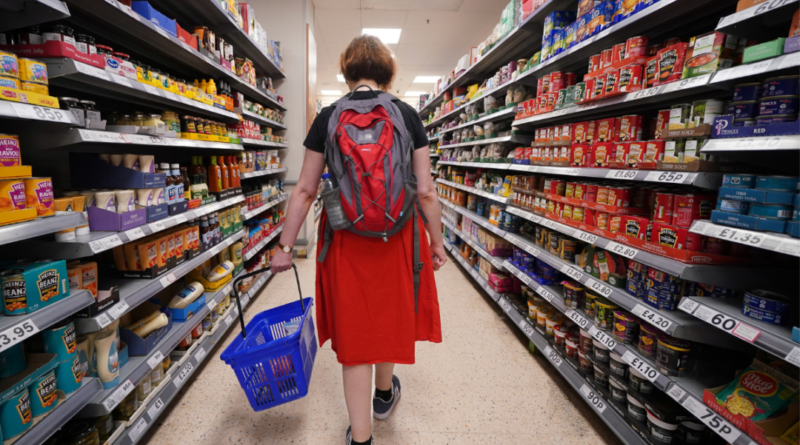Data Analysts Report Increase in Grocery Price Inflation
Supermarkets have experienced a surge in take-home sales, reaching a peak of £11.6 billion in October, making it the biggest spending month of the year so far.
According to Kantar, grocery prices in October saw a 2.3 percent increase compared to October 2023, surpassing September’s 2 percent rise.
The group explained that while the figures have slightly risen, they are still considered “within typical levels,” staying consistently below 3 percent monthly since the summer.
Kantar noted that supermarket promotions and sales of own-brand products are helping to keep prices down. Customer spending on deals has been steadily increasing for the past 18 months, now accounting for 28.6 percent of all sales.
Simultaneously, take-home sales have increased. Supermarkets saw a record-high spending month, totaling £11.6 billion in the four weeks leading up to Nov. 3.
This increase coincided with a rise in the number of shopping trips per customer, reaching 480 million in the previous month, averaging four trips per household per week.
Holiday Spending
October witnessed a shopping frenzy not seen since March 2020, as consumers prepared for Halloween and Christmas. However, shopping frequency has not yet returned to pre-pandemic levels, over four years after the initial lockdown.
Impact of Tax Rises
After UK supermarket giants raised concerns about the impact of recent tax changes on inflation and grocery prices, it was revealed that Labour’s Budget on Oct. 30 included a rise in employer National Insurance contributions and an increase in the national minimum wage.
Warnings from leading retailers highlighted substantial additional costs to their businesses. Sainsbury’s anticipates an added £140 million in employer NICs, even before wage adjustments.
Chancellor Rachel Reeves defended the tax changes, suggesting that businesses could absorb the costs through efficiency gains or reduced profits, rather than cutting wages.
However, Sainsbury’s Chief Executive Simon Roberts expressed concerns that absorbing such significant cost increases without impacting consumers will be challenging.
Asda, the third-largest UK food retailer, indicated that the tax revisions will result in an extra £100 million in costs for the chain, potentially leading to price hikes.
Asda Chairman Lord Stuart Rose emphasized the industry’s efficiency in mitigating costs but acknowledged the potential inflationary impact on prices.
“We are a very efficient industry, as retailers. We will do everything we can to mitigate this cost. But of course, you can’t deny it will probably be inflationary to some degree. We’re just working through the details of that now … We’re looking at the impact.”
Hospitality Sector Predictions
Hospitality sector representatives, such as UKHospitality, warned that the increase in the national minimum wage will impose an additional £3.4 billion in costs on the industry starting April.
UKHospitality CEO Kate Nicholls noted the challenges this rise poses to businesses, highlighting the inability to pass on costs to customers without facing adverse effects on purchasing power.
Nicholls stated, “There is no capacity to pass the costs onto customers. Businesses would be reluctantly forced to raise prices by 6-8 percent, fuelling inflation, yet could not realistically do so as our customers are at the end of their ability to pay more.”
“Instead, many businesses would have to reconsider investment and drastically cut jobs and reduce the hours of team members. Contract catering, a significant part of our sector, would struggle to meet important public sector catering contracts for schools, hospitals, and prisons,” she added.





